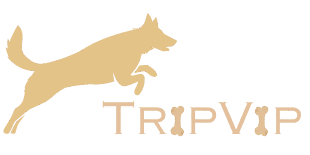Have you ever caught your furry friend devouring dirt and wondered what’s behind this behavior? You’re not alone. Many pet owners have observed their dogs exhibiting this peculiar eating habit, sparking concern about their health and wellbeing. Why Dog Eats Dirt
It’s natural to question whether this behavior is a sign of an underlying health issue or simply a natural part of being a dog. Understanding dog behavior eating dirt is crucial in determining the cause and deciding on the best course of action for your pet.
As we explore this topic, we’ll delve into the possible reasons behind this behavior, examining whether it’s linked to health concerns or is simply a leftover trait from their wild ancestors.
Why Dogs Eat Dirt: Common Causes
Understanding why dogs eat dirt is crucial for any dog owner. Dogs eating dirt can be attributed to several factors, and it’s essential to explore these reasons to address the behavior effectively.
Natural Instincts and Evolutionary Behavior
Dogs often exhibit behaviors that are rooted in their natural instincts and evolutionary history. Their ancestors used to dig and sometimes eat dirt as part of their survival mechanism. This behavior could be an inherited trait, manifesting in modern dogs as dirt eating.
Key factors include:
- Instinctual digging behavior
- Ancestral habits
- Exploratory behavior
Nutritional Deficiencies and Pica
Another significant reason dogs might eat dirt is due to nutritional deficiencies. Dogs require a balanced diet that includes essential minerals and nutrients. When their diet lacks certain nutrients, they might seek out non-food items like dirt to supplement their nutritional intake. This condition is known as pica, a disorder where animals eat non-food items.
Common nutritional deficiencies include:
- Lack of minerals such as iron or zinc
- Inadequate dietary fiber
- Other nutrient deficiencies
Boredom and Behavioral Factors
Boredom and various behavioral factors can also contribute to dogs eating dirt. Dogs need mental and physical stimulation, and without adequate exercise or engagement, they might resort to eating dirt out of boredom or anxiety.
Addressing these factors involves:
- Providing adequate physical exercise
- Engaging dogs in mental stimulation activities
- Reducing stress and anxiety
Health Risks and When to Be Concerned
While it’s natural for dogs to be curious about their surroundings, eating dirt can pose serious health risks. Consuming dirt exposes dogs to a variety of potential dangers, including parasites, toxins, and harmful bacteria. If the dirt is contaminated with chemicals or feces, it can lead to serious health issues. Moreover, compulsive dirt eating can be a sign of an underlying health problem that needs to be addressed.
Potential Dangers of Dirt Consumption
Dirt consumption can lead to a range of health issues in dogs. Some of the potential dangers include:
- Parasites such as hookworms and roundworms that can be present in contaminated soil.
- Toxins from chemicals or pesticides used in gardens or public spaces.
- Harmful bacteria like Clostridium and E. coli that can cause infections.

These risks underscore the importance of monitoring your dog’s behavior and taking steps to prevent dirt consumption.

Warning Signs That Require Veterinary Attention
If your dog is eating dirt, there are several warning signs that you should watch out for, indicating that veterinary attention is necessary. These include:
- Vomiting or diarrhea after consuming dirt.
- Visible signs of parasites or blood in the stool.
- Lethargy or loss of appetite.
If you notice any of these symptoms, it’s crucial to consult with a veterinarian to rule out any underlying health issues.
Effective Ways to Stop Your Dog from Eating Dirt
Stopping your dog from eating dirt requires a multi-faceted approach. Here are some effective strategies:
- Change Their Diet: Ensure your dog is getting a balanced diet that meets all their nutritional needs.
- Provide More Stimulation: Increase exercise and mental stimulation to reduce boredom and stress.
- Training: Teach your dog the “leave it” command to discourage them from eating dirt.
By implementing these strategies, you can help reduce your dog’s inclination to eat dirt and mitigate the associated health risks.
Conclusion
Understanding why your dog eats dirt is crucial in determining the best course of action to address this behavior. By recognizing the underlying causes, whether it’s due to natural instincts or nutritional deficiencies, you can take steps to ensure your dog’s health and well-being.
If you’re concerned about your dog eating dirt, it’s essential to explore the common causes and potential health risks associated with this behavior. By adjusting their diet, providing more stimulation, or seeking veterinary care, you can help your dog lead a healthier life. To effectively stop your dog from eating dirt, consider the strategies outlined in our discussion on how to stop dog from eating dirt.
Being informed and attentive to your dog’s needs is key to addressing the issue of why your dog eats dirt. Every dog is different, and what works for one may not work for another. By being proactive and taking the necessary steps, you can help your dog overcome this behavior and enjoy a happier, healthier life.





